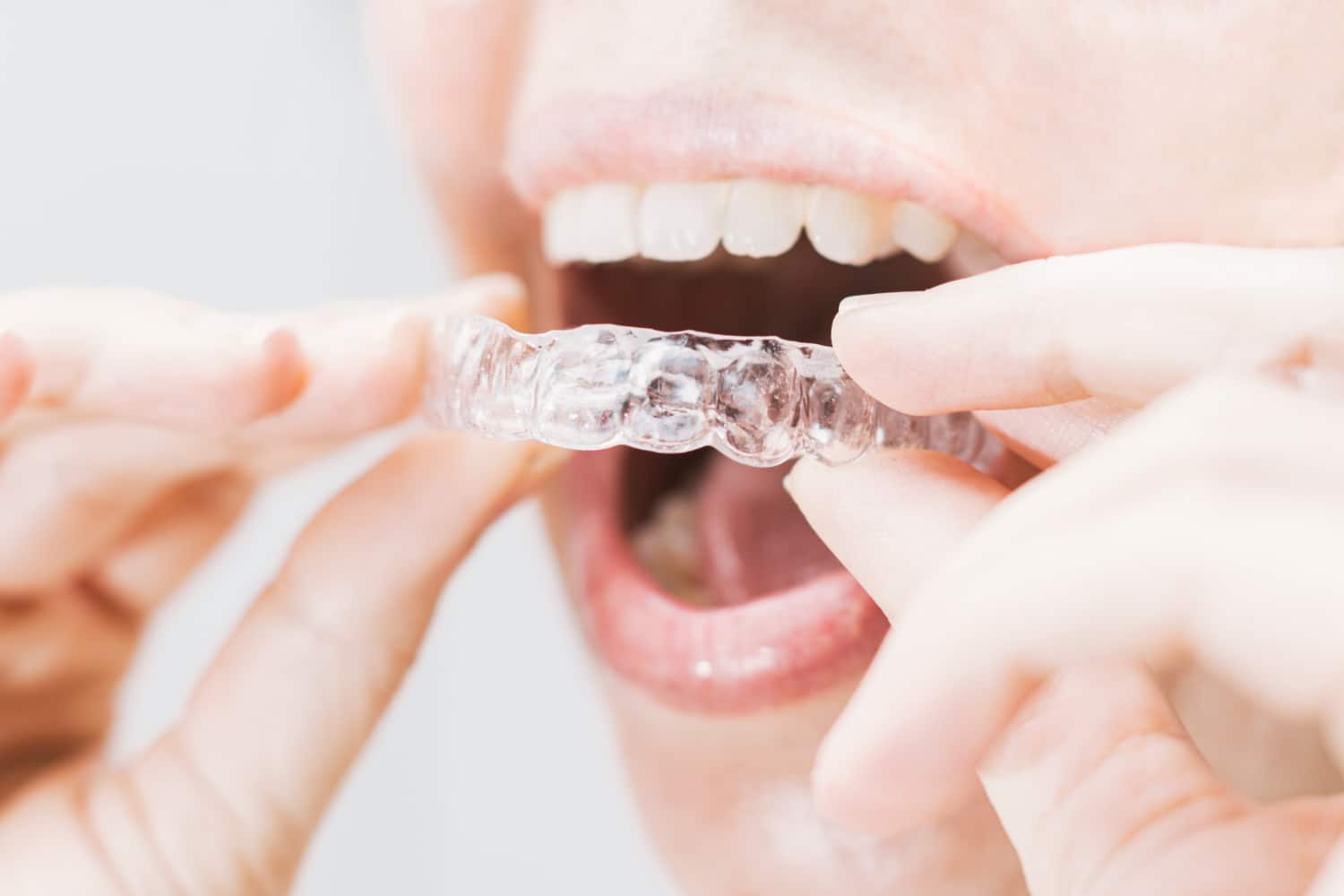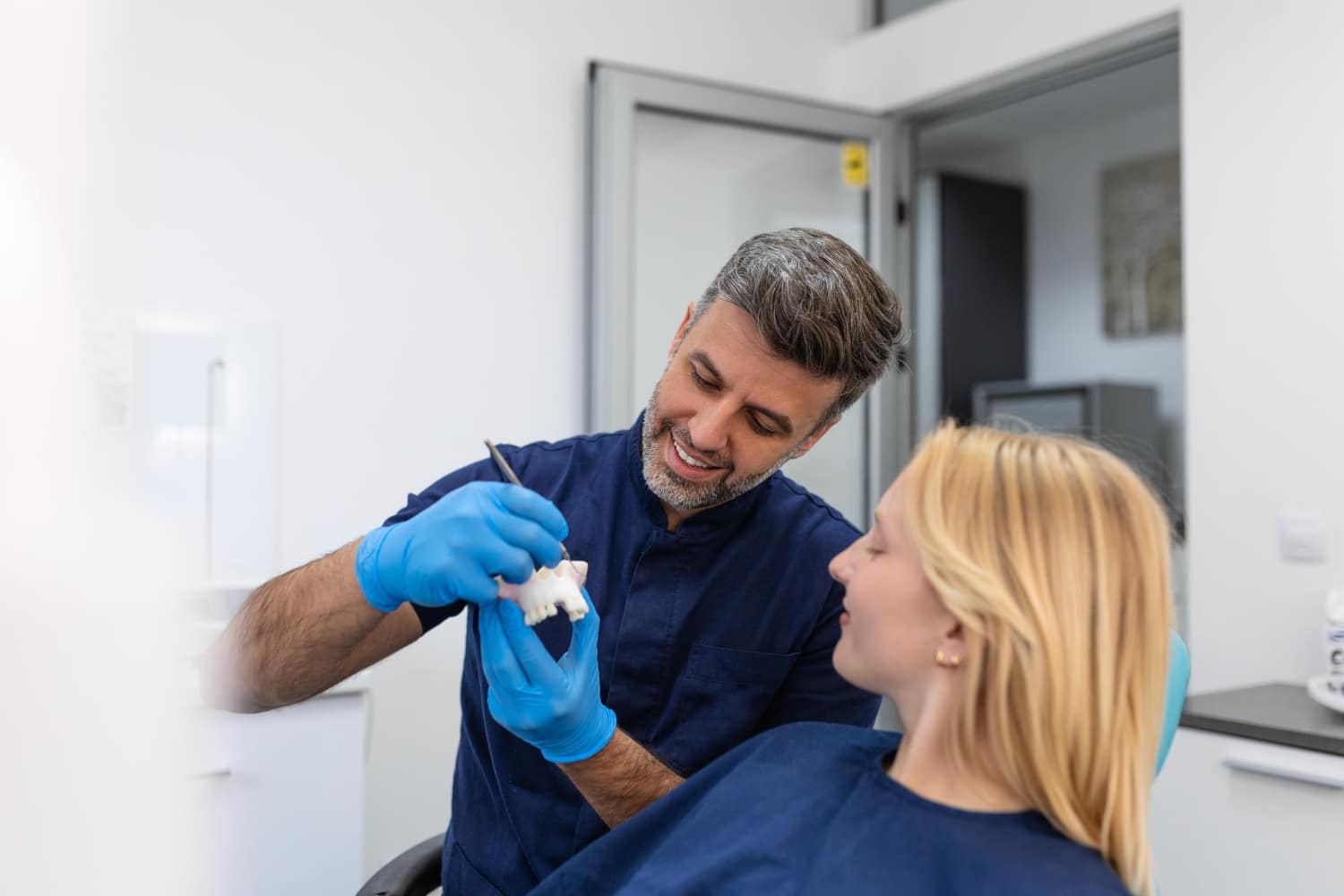Some dental problems are plain to see. For instance, the one above is not too hard to see, right?
Maybe your child got a tooth knocked out while skateboarding, or maybe you accidentally bit down on a pistachio shell and chipped off a huge piece of your tooth. In either event, the damage would be obvious, so you would know to call us so we could assess and repair the damage.
A cracked tooth isn’t always this obvious, though. Actually, they can be really tough to deal with!
That’s because it can take a while to even discover that your tooth has cracked. In fact, most cracks aren’t visible to the naked eye. Unfortunately, though, even a tiny one can become really painful. That’s how most people discover there’s a problem — it hurts to bite down, their hot morning coffee has suddenly become unbearable, or their ice-cold sports drink at the gym is excruciating.
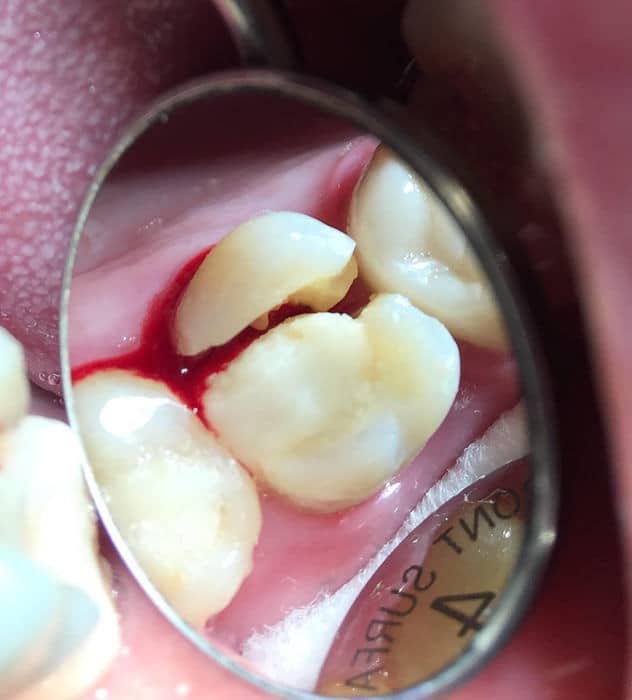
Why does a cracked tooth hurt so much?
To answer that question, you have to understand what’s physically going on. Your tooth has outer layers that are very hard, but if they crack, they’ll start rubbing up against your tooth’s sensitive nerve and irritating it. Inside the pulp are your tooth’s nerves and all of its blood vessels, so any damage to the pulp can be very painful. If the damage to your pulp lingers long enough, it can cause an infection that spreads into the adjoining bones and gum tissue.
But in many cases, this pain isn’t constant.
That’s part of why it’s so hard to diagnose a cracked tooth. You may feel fine one day and then be in agony the next. Adding to the trickiness, cracks don’t show up on x-rays. You may know what side of your mouth is in pain, but you may not know exactly which tooth is the culprit! As a result, our dentists might have to spend some time diagnosing the problem.
Please call our office if this tell-tale pain pops up. A cracked tooth doesn’t get better on its own. In fact, cracks never fully heal. If your tooth is cracked, it will get worse and worse until you turn to your dentist for help.
Can a cracked tooth heal?
If we catch the crack early enough, we may be able to repair the damage by bonding your tooth, filling it, or making a crown. We have specialized cameras that can shine lights through the tooth to catch the cracks before they become large and take corrective action.
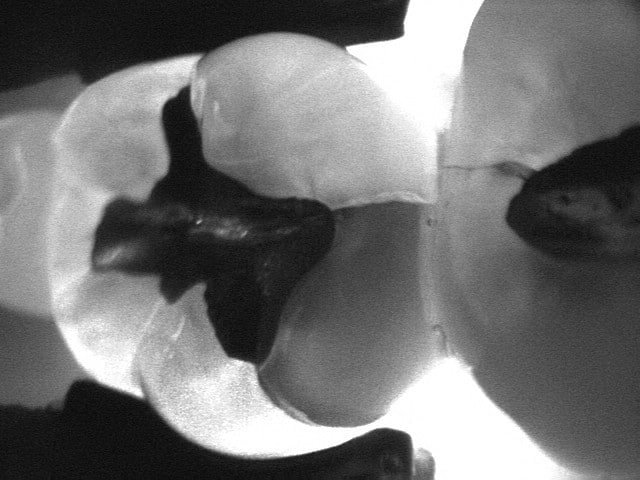
But if the crack has made it all the way into your tooth’s pulp and you’re having a lot of pain, we’ll likely have to give you a root canal — meaning we’ll clean out the infected pulp and then seal the tooth to prevent further damage. We will probably have to take things one step further and put a crown over the affected tooth to protect it even more.
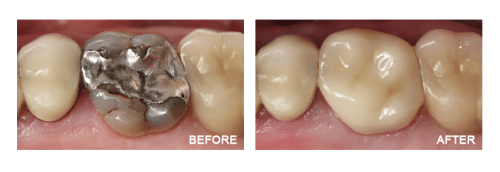
In severe cases, a cracked tooth is damaged so badly that there is no choice but to extract it. For example, if the crack has split your tooth into two pieces, it likely can’t be saved.
How can I prevent a cracked tooth?
Unfortunately, there’s no guaranteed way to protect your teeth from cracks. However, there are things you can do to lessen your chances of falling victim to them, including:
- Wearing a bite (occlusal) guard if you grind your teeth
- Fixing old silver fillings that show early signs of fractures
- Avoid chewing on hard things, like ice cubes
- Address any bite alignment issues so that there’s not uneven pressure placed on your teeth
Basically, don’t do anything that puts excessive stress and strain on your teeth! And while you’re at it, be sure to see us for regular check-ups. That way, our trained eyes have a chance to spot small issues before they turn into big problems.
